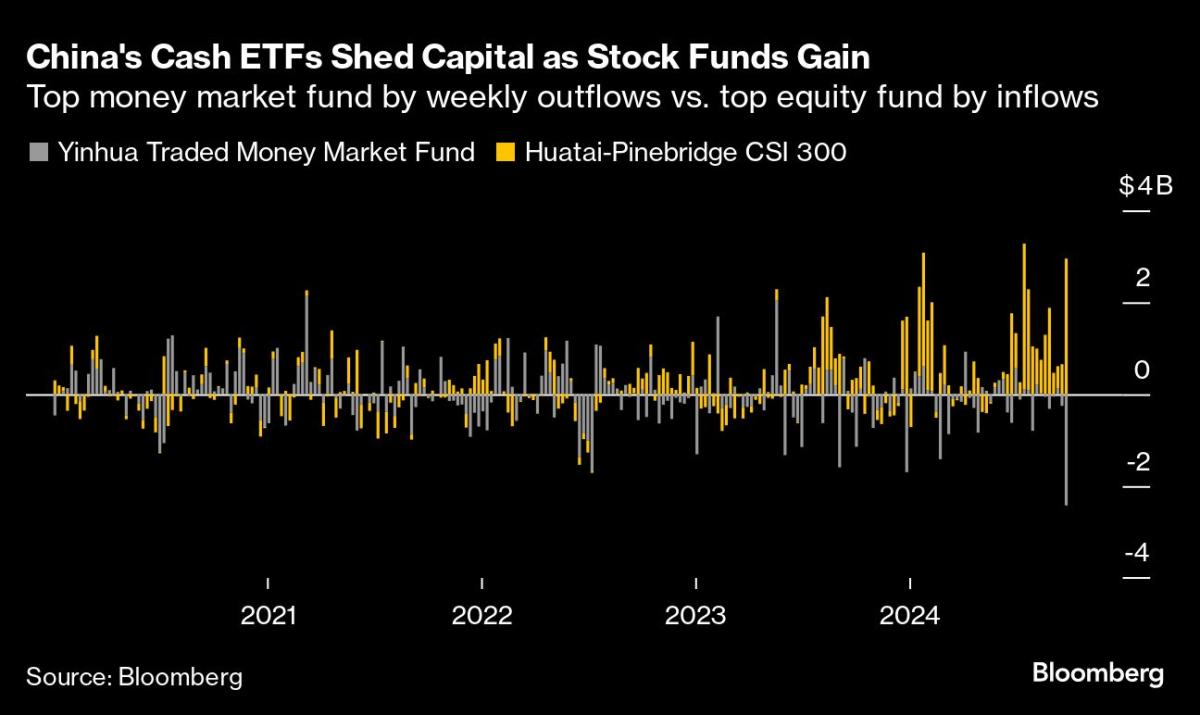China’s Cash Funds Lose Billions in Rush Back to Stock Market

(Bloomberg) -- Billions of dollars have exited China’s largest money market exchange-traded funds just as billions more flowed into ETFs tracking equities, signaling that Beijing has finally drawn skeptical investors back to the country’s struggling stock market.
Most Read from Bloomberg
Last week, China’s 10 largest money market ETFs saw combined outflows of $4.1 billion, while the 10 biggest equity ETFs lured $6 billion in new capital. This shift followed fresh stimulus measures that spurred the best week for mainland stocks since 2008.
The outflows were concentrated in two of the largest cash funds: the Yinhua Traded Money Market Fund, which lost $2.4 billion, and the Hwabao WP Cash Tianyi, which shed $1.7 billion, accounting for more than 10% of each fund. Inflows among the top 10 equity funds were led by the Huatai-Pinebridge CSI 300 ETF, which attracted $2.9 billion.
In a surprising barrage of stimulus aimed at supporting the economy and financial markets, China cut borrowing costs, eased rules on purchases of second homes and issued cash handouts. The move to include fiscal stimulus was a big driver behind the market’s reaction, according to Nick Ferres, chief investment officer for Vantage Point Asset Management in Singapore.
“The magnitude of what they’ve done so far is not enough but the direction is definitely pivotal — that is important,” Ferres said in an interview.
Money market funds around the world had attracted capital as interest rates in many developed market economies were raised to combat inflation. In China, where deflation has become a bigger challenge, investors flocked to such products, partly due to the prolonged slump in the country’s equity market. Demand for these investments has even helped non-bank financial institutions sidestep seasonal liquidity crunches.
Investors should “buy first, think later,” Britney Lam, head of long-short equities for Magellan Investments Holdings Ltd., said in a note about the rally in Chinese equities. The recent stimulus is akin to measures unveiled a decade ago, which included local government debt support, and those steps sent equities surging, she said.
“This looks like a replay of the same so don’t miss the rally by focusing on economic data that are lagged in nature,” Lam said. “Like all market cycles, multiples move first from sentiment then comes fundamental changes.”
Most Read from Bloomberg Businessweek
©2024 Bloomberg L.P.
Breaking news
See all






